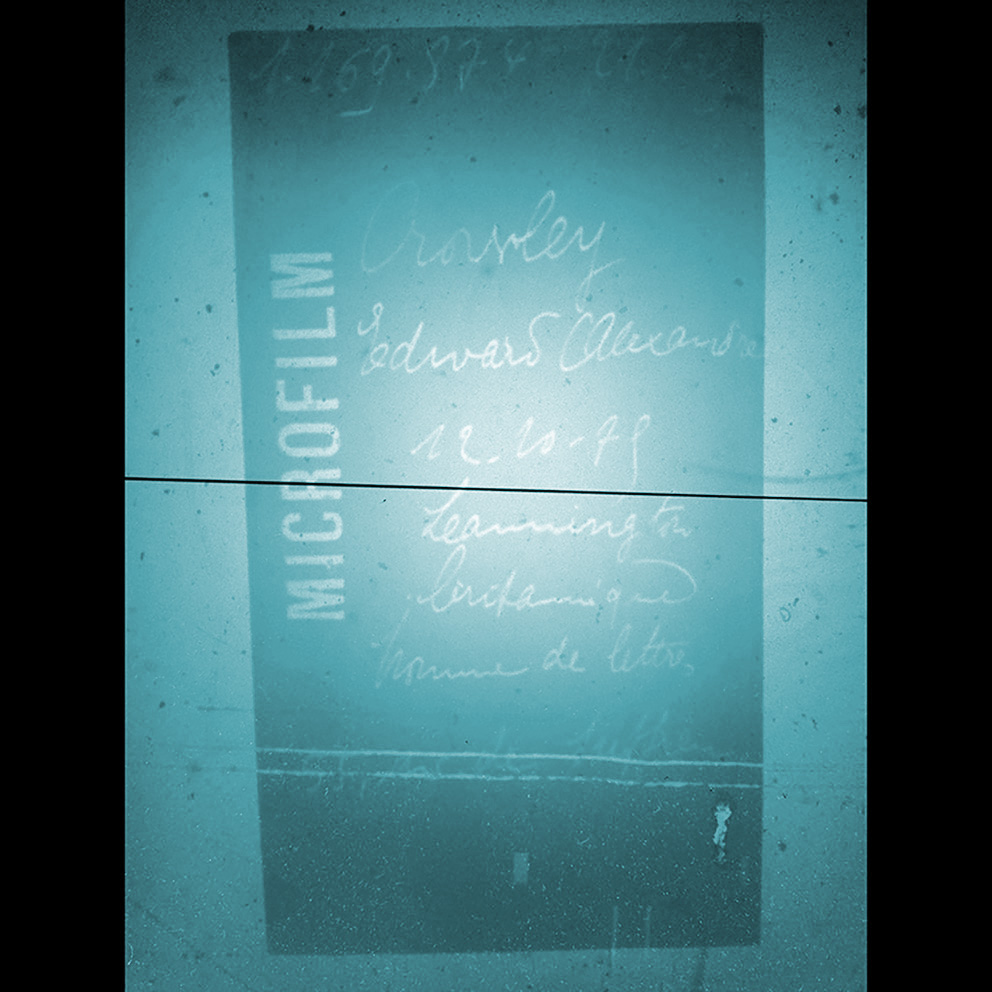Police archives, Paris
One such find was the police registration form for Aleister Crowley, renowned occultist who made Paris his home at various points throughout his life. The microfilm from the Paris police archives is dated 21/02/1929. Crowley has written in his own hand: Crowley, Edward Alexander, 12.10.75, Leamington, Britannique, Homme de lettres. His address (partly indecipherable) reads, 53 ?? de Suffren. The file is an interesting enough historical document in itself, but in addition to the fact that Crowley and Orwell were both in Paris in 1928-1929 (let’s face it, who wasn’t) they are linked by association to one woman: Jacintha Buddicom, Orwell’s childhood sweetheart and source of unrequited love. Jacintha knew Crowley towards the end of his life and had done a tarot reading for him; a task she performed for other notables including Churchill and even The Beatles*.
Share this:
Tags: 1928, 1929, Aleister Crowley, Buddicom, Crowley, down and out, Eric Blair, Jacintha Buddicom, John Lennon, orwell, paris, Sergeant Pepper
